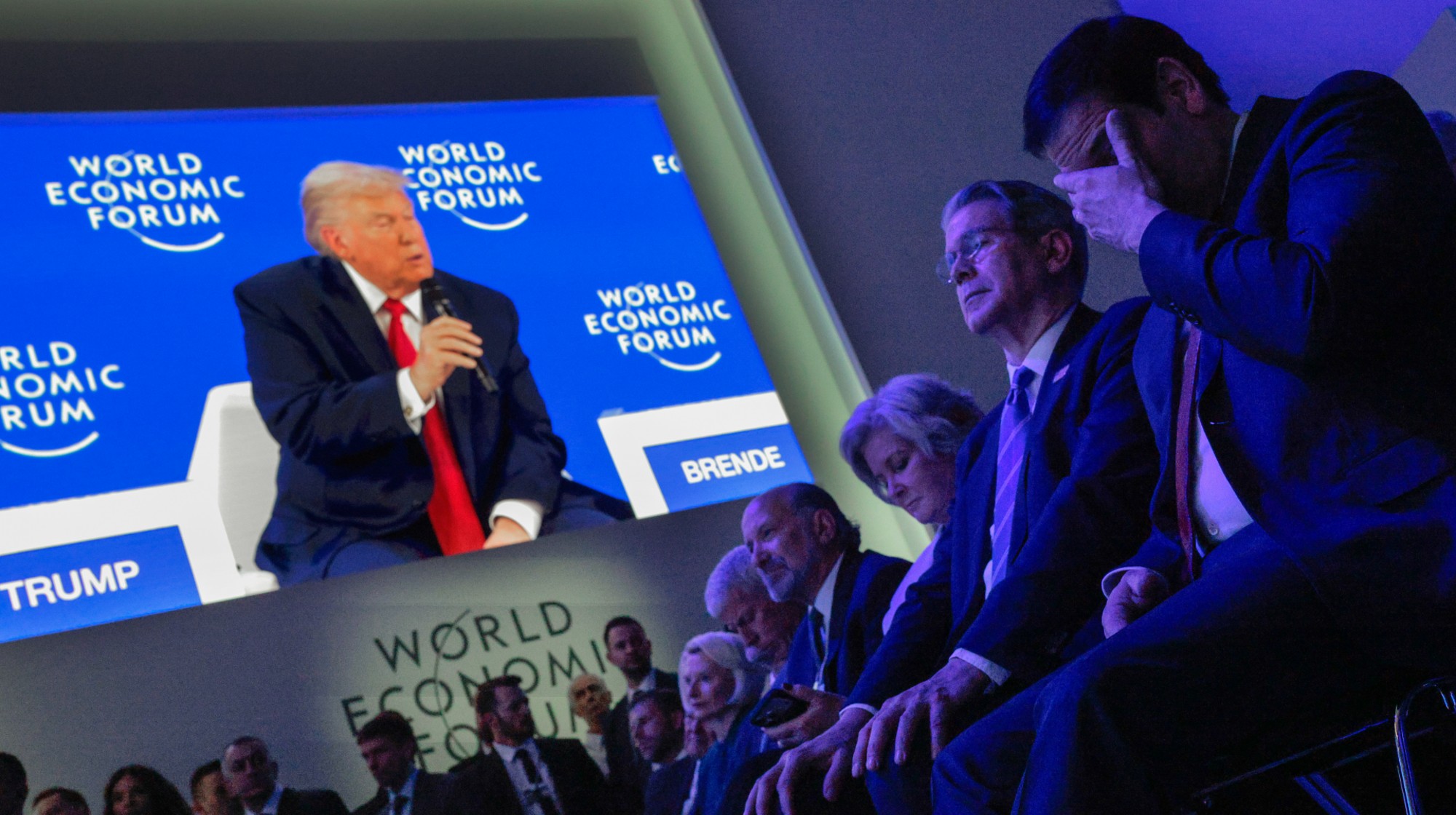Germany's conservatives win power amid far-right gains
The party led by Friedrich Merz won the country's national election; the primary voter issues were the economy and immigration


A free daily email with the biggest news stories of the day – and the best features from TheWeek.com
You are now subscribed
Your newsletter sign-up was successful
What happened
Germany's center-right Christian Democrats/Christian Social Union bloc won a 28.5% plurality in Sunday's national election, making CDU leader Friedrich Merz the presumptive next chancellor. The election was held seven months early due to the collapse of Chancellor Olaf Scholz's three-party coalition in November. Scholz's Social Democrats earned just 16.4% of the vote, while the hard-right Alternative for Germany (AfD) party jumped to second place with 20.8%, nearly double its previous high.
Who said what
The CDU's "lackluster victory" capped a campaign marked by "widespread discontent and not much enthusiasm for any of the candidates," The Associated Press said. The dominant themes were "worries about the yearslong stagnation of Europe's biggest economy and pressure to curb migration." Voter turnout was 83%, the highest since East and West German reunified in 1990.
Merz said his first priority was to "create a functioning government in Germany as quickly as possible." Scholz took responsibility for the Social Democrats' "bitter election result" and said he would not hold a ministerial role in a grand coalition government with the CDU, considered the most likely outcome of the election.
The Week
Escape your echo chamber. Get the facts behind the news, plus analysis from multiple perspectives.

Sign up for The Week's Free Newsletters
From our morning news briefing to a weekly Good News Newsletter, get the best of The Week delivered directly to your inbox.
From our morning news briefing to a weekly Good News Newsletter, get the best of The Week delivered directly to your inbox.
President Donald Trump congratulated the "conservative party in Germany" for its victory, and in a "characteristically bizarre manner," Politico said, he also "claimed the conservative victory was part of his own success, somehow." Vice President J.D. Vance and top ally Elon Musk had thrown their support behind the AfD. Merz criticized that "intervention from Washington" and said his "absolute priority" was to "strengthen Europe as quickly as possible, so that we achieve independence from the U.S." That's something "I never thought I would have to say," he added, "but after Donald Trump's statements" in recent weeks it is "clear that the Americans, at least this part of the Americans, this administration, are largely indifferent to the fate of Europe."
What next?
Merz, 69, reiterated that the AfD will not be part of his government, retaining the "firewall" between Germany's political mainstream and a far-right party that "routinely flirts with Nazi slogans and whose members have diminished the Holocaust," The New York Times said. AfD leader Alice Weidel said if Merz did not include her party, his government would not last, he would be an "interim chancellor" and in the next election, "we'll come first."
A free daily email with the biggest news stories of the day – and the best features from TheWeek.com
Peter has worked as a news and culture writer and editor at The Week since the site's launch in 2008. He covers politics, world affairs, religion and cultural currents. His journalism career began as a copy editor at a financial newswire and has included editorial positions at The New York Times Magazine, Facts on File, and Oregon State University.
-
 What to know before filing your own taxes for the first time
What to know before filing your own taxes for the first timethe explainer Tackle this financial milestone with confidence
-
 The biggest box office flops of the 21st century
The biggest box office flops of the 21st centuryin depth Unnecessary remakes and turgid, expensive CGI-fests highlight this list of these most notorious box-office losers
-
 What are the best investments for beginners?
What are the best investments for beginners?The Explainer Stocks and ETFs and bonds, oh my
-
 Switzerland could vote to cap its population
Switzerland could vote to cap its populationUnder the Radar Swiss People’s Party proposes referendum on radical anti-immigration measure to limit residents to 10 million
-
 Key Bangladesh election returns old guard to power
Key Bangladesh election returns old guard to powerSpeed Read The Bangladesh Nationalist Party claimed a decisive victory
-
 Greenland’s capital becomes ground zero for the country’s diplomatic straits
Greenland’s capital becomes ground zero for the country’s diplomatic straitsIN THE SPOTLIGHT A flurry of new consular activity in Nuuk shows how important Greenland has become to Europeans’ anxiety about American imperialism
-
 Which way will Trump go on Iran?
Which way will Trump go on Iran?Today’s Big Question Diplomatic talks set to be held in Turkey on Friday, but failure to reach an agreement could have ‘terrible’ global ramifications
-
 EU and India clinch trade pact amid US tariff war
EU and India clinch trade pact amid US tariff warSpeed Read The agreement will slash tariffs on most goods over the next decade
-
 Grok in the crosshairs as EU launches deepfake porn probe
Grok in the crosshairs as EU launches deepfake porn probeIN THE SPOTLIGHT The European Union has officially begun investigating Elon Musk’s proprietary AI, as regulators zero in on Grok’s porn problem and its impact continent-wide
-
 Ukraine, US and Russia: do rare trilateral talks mean peace is possible?
Ukraine, US and Russia: do rare trilateral talks mean peace is possible?Rush to meet signals potential agreement but scepticism of Russian motives remain
-
 Trump backs off Greenland threats, declares ‘deal’
Trump backs off Greenland threats, declares ‘deal’Speed Read Trump and NATO have ‘formed the framework for a future deal,’ the president claimed
